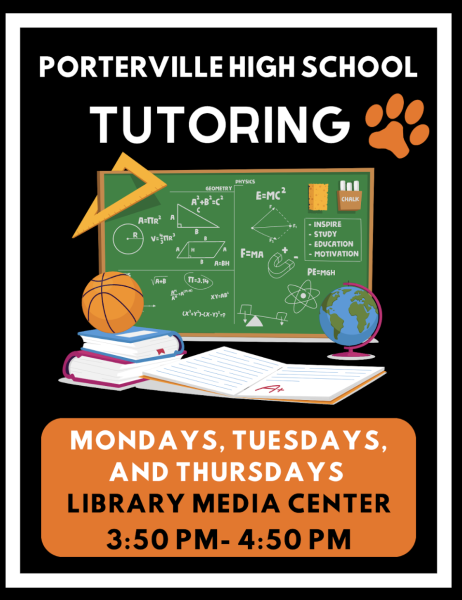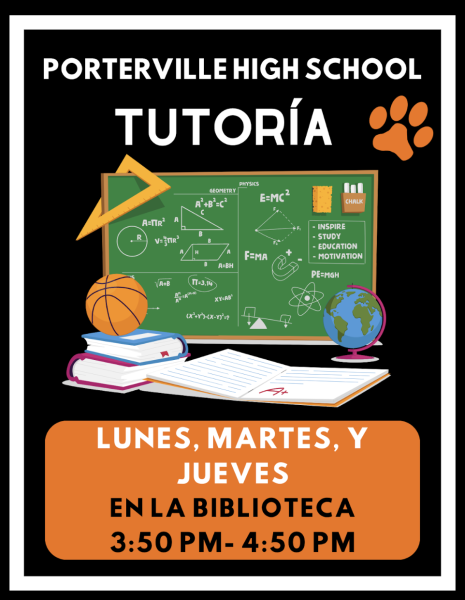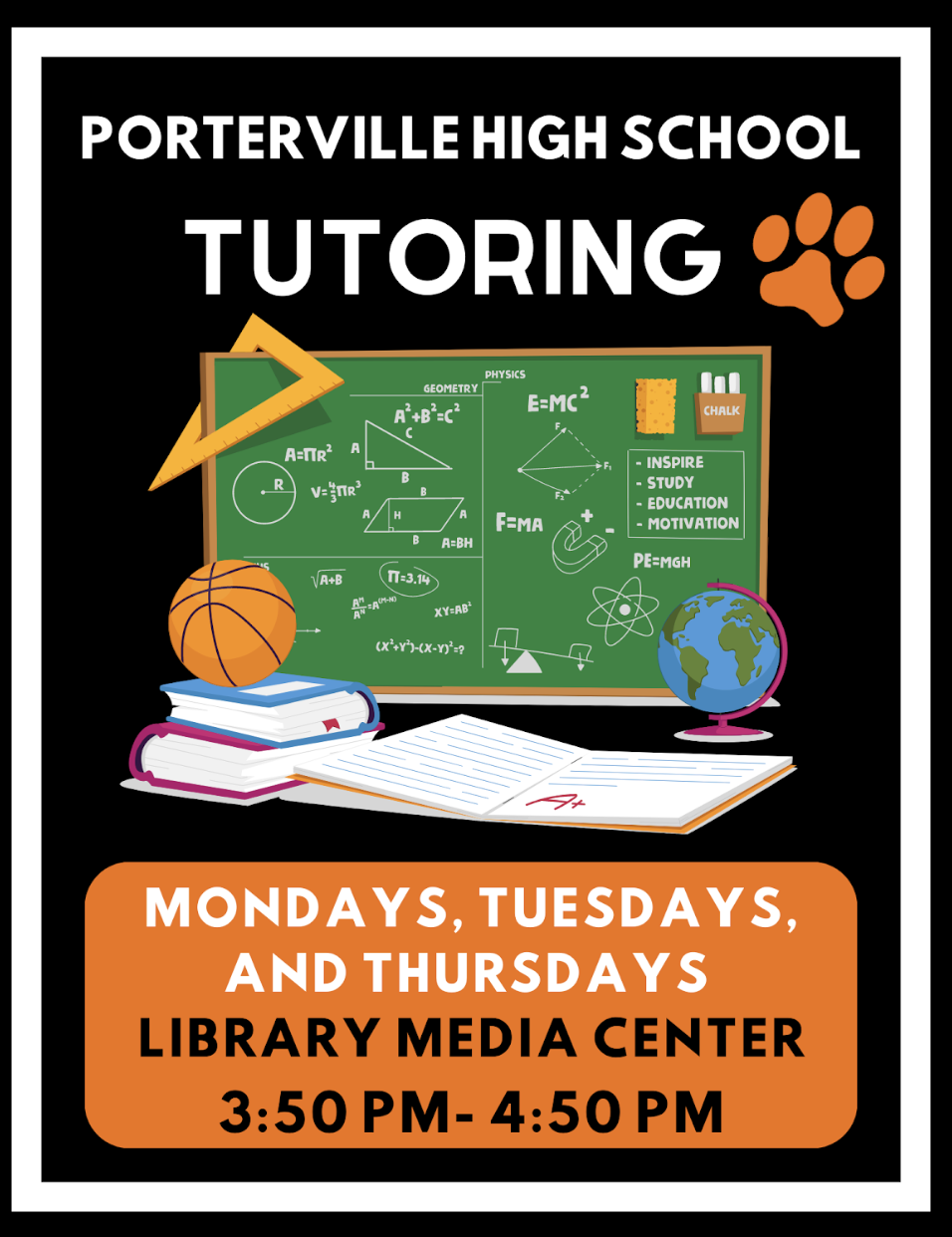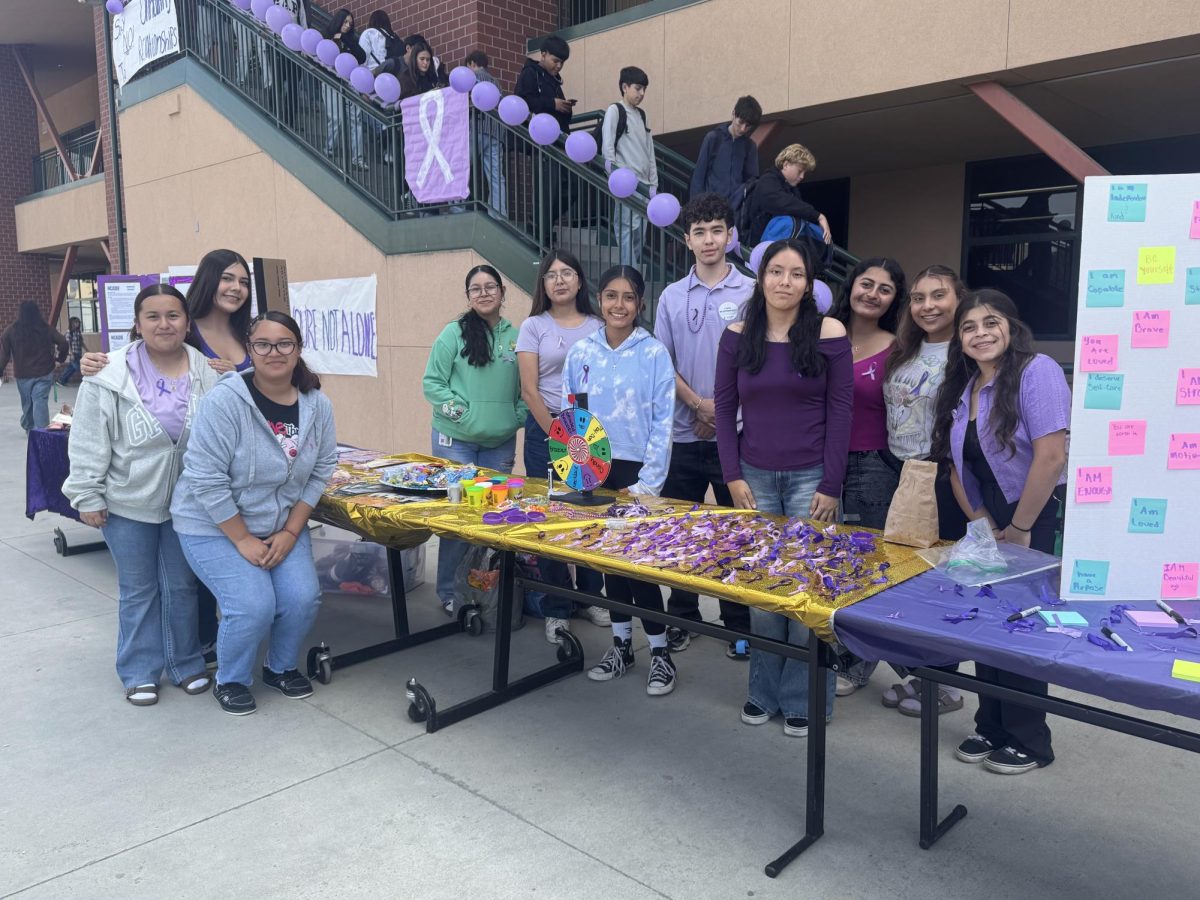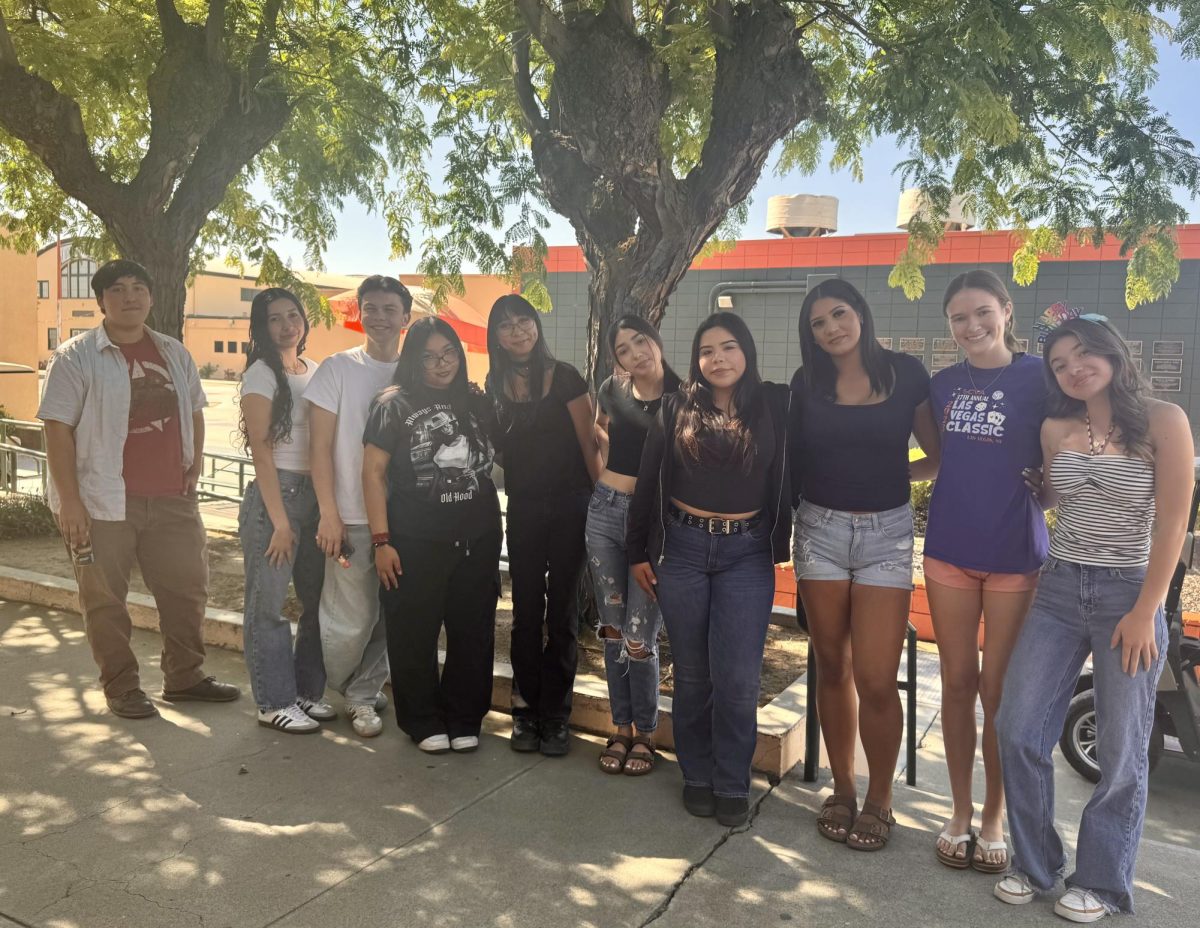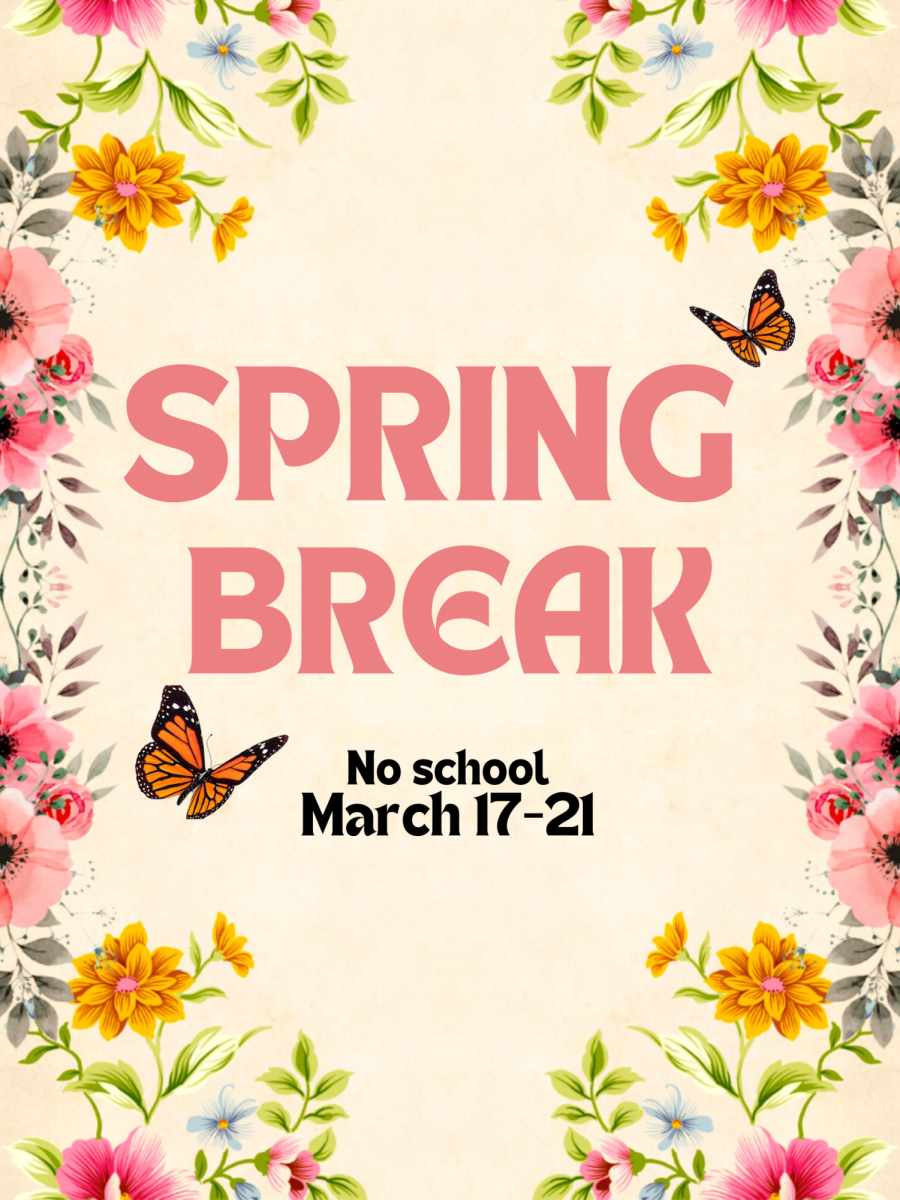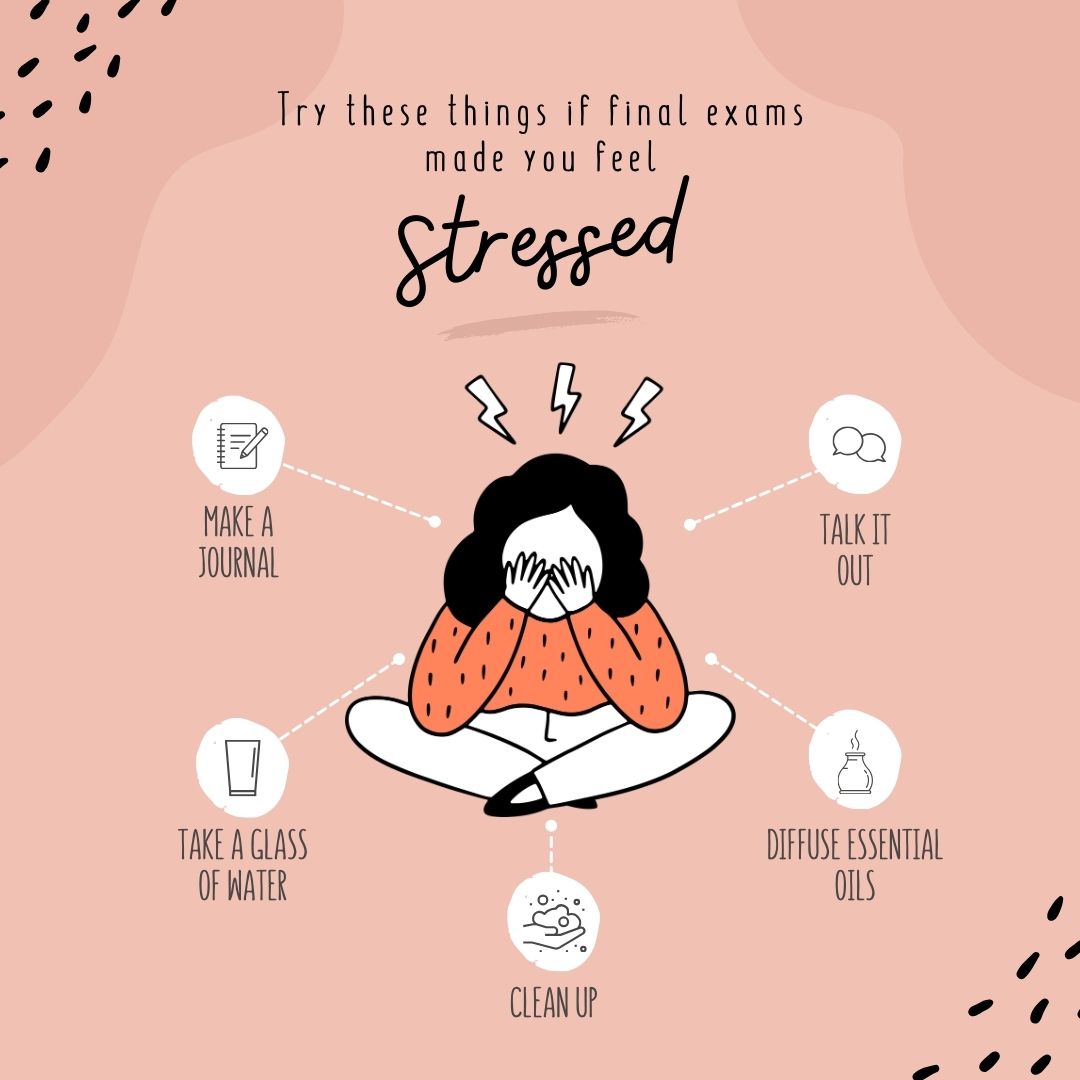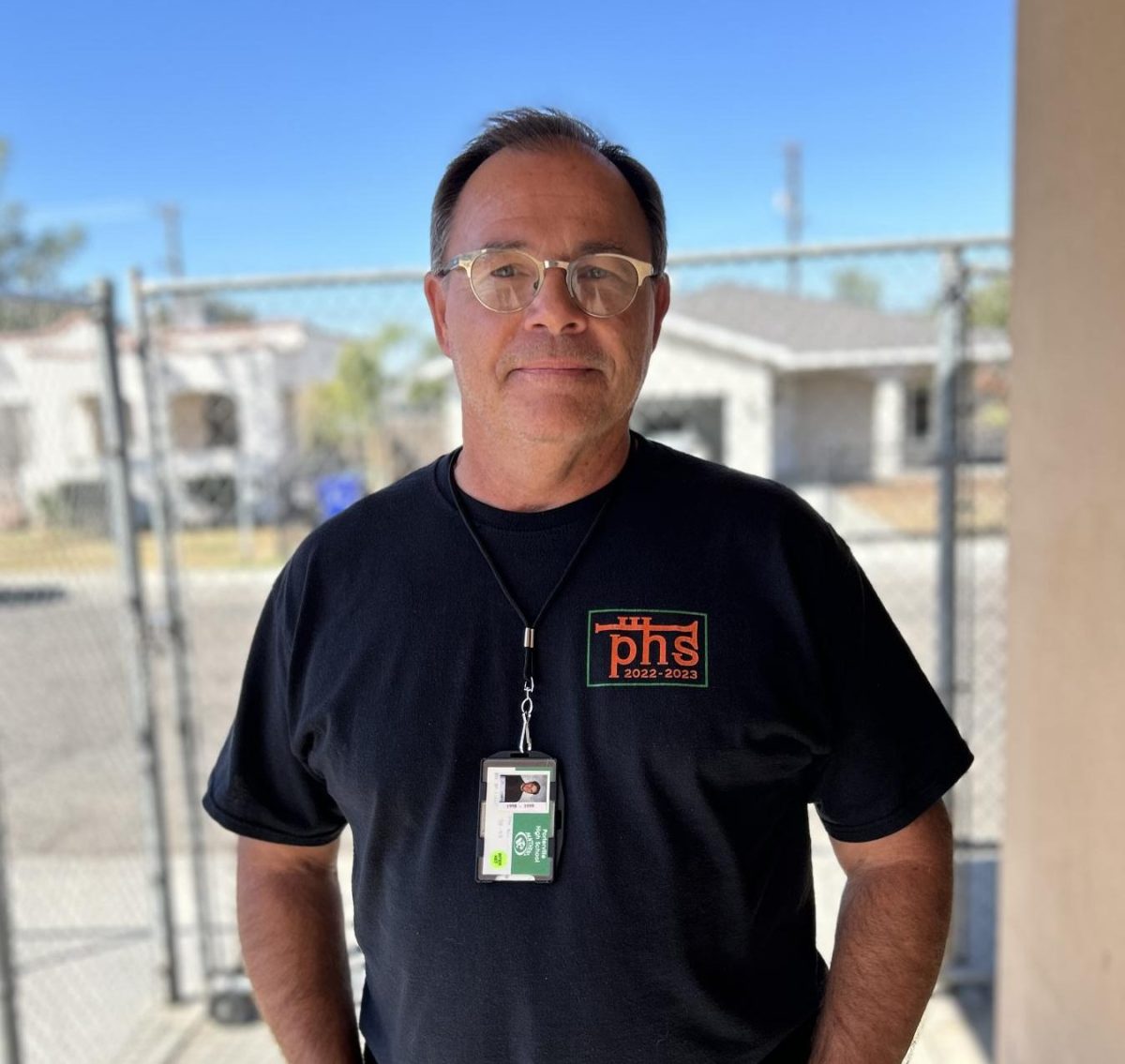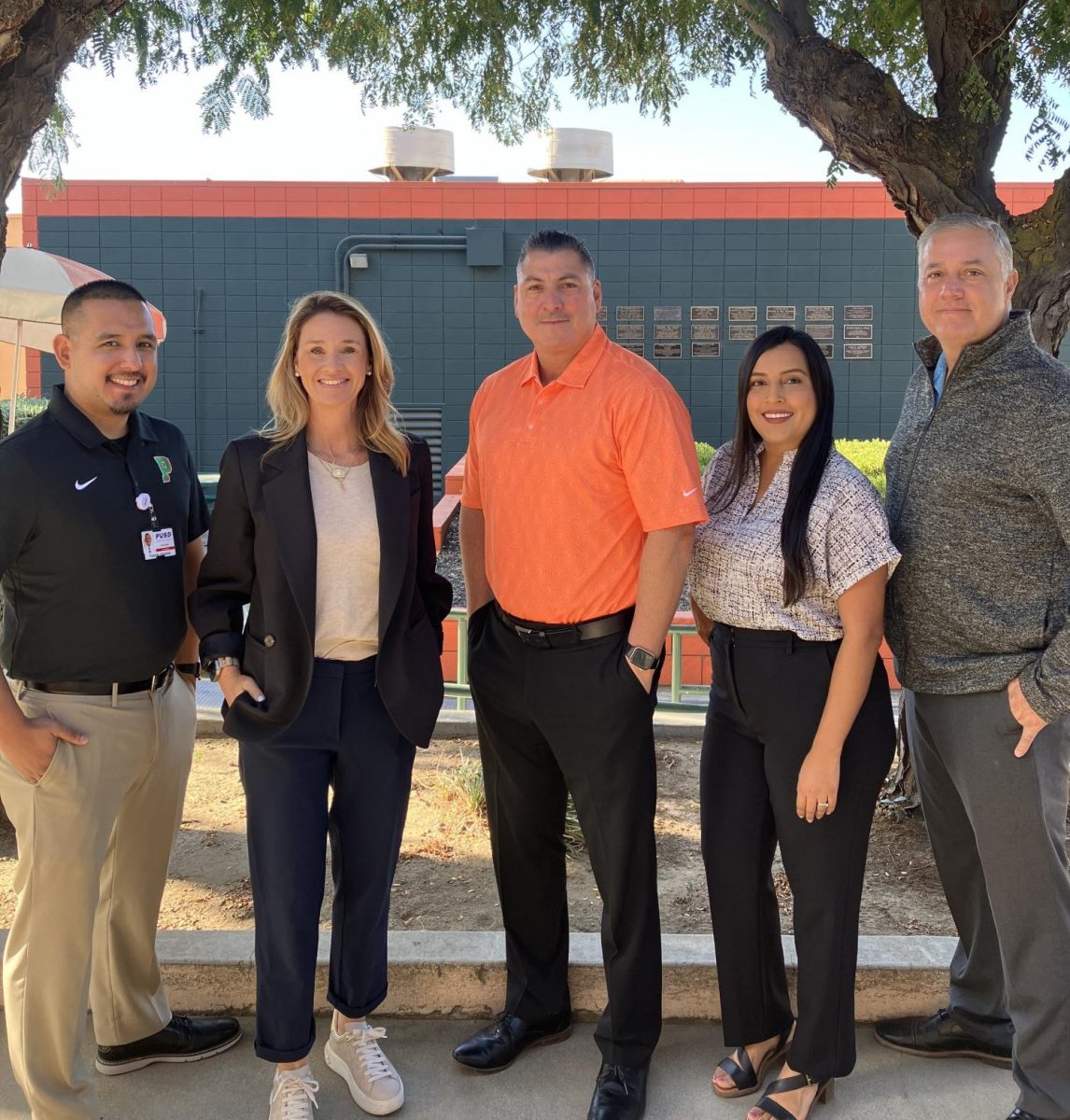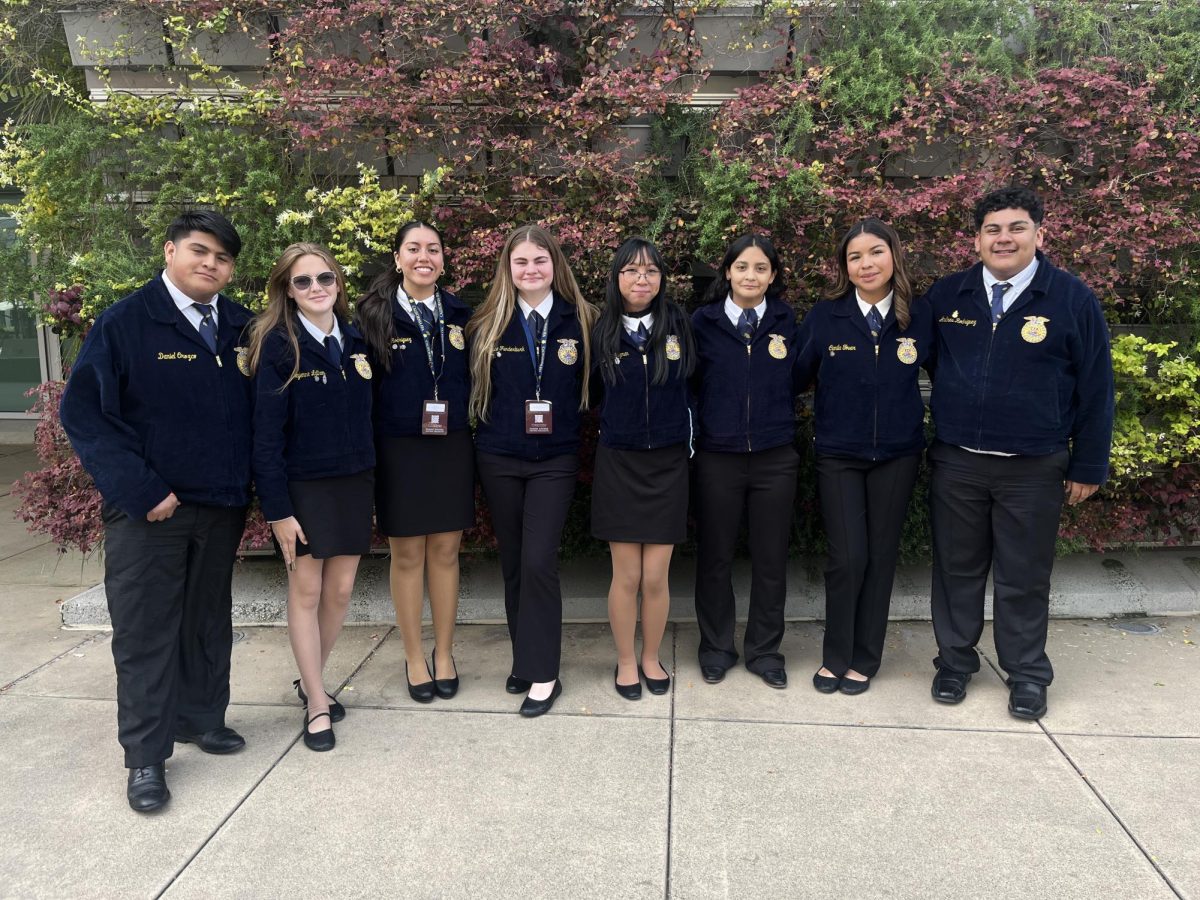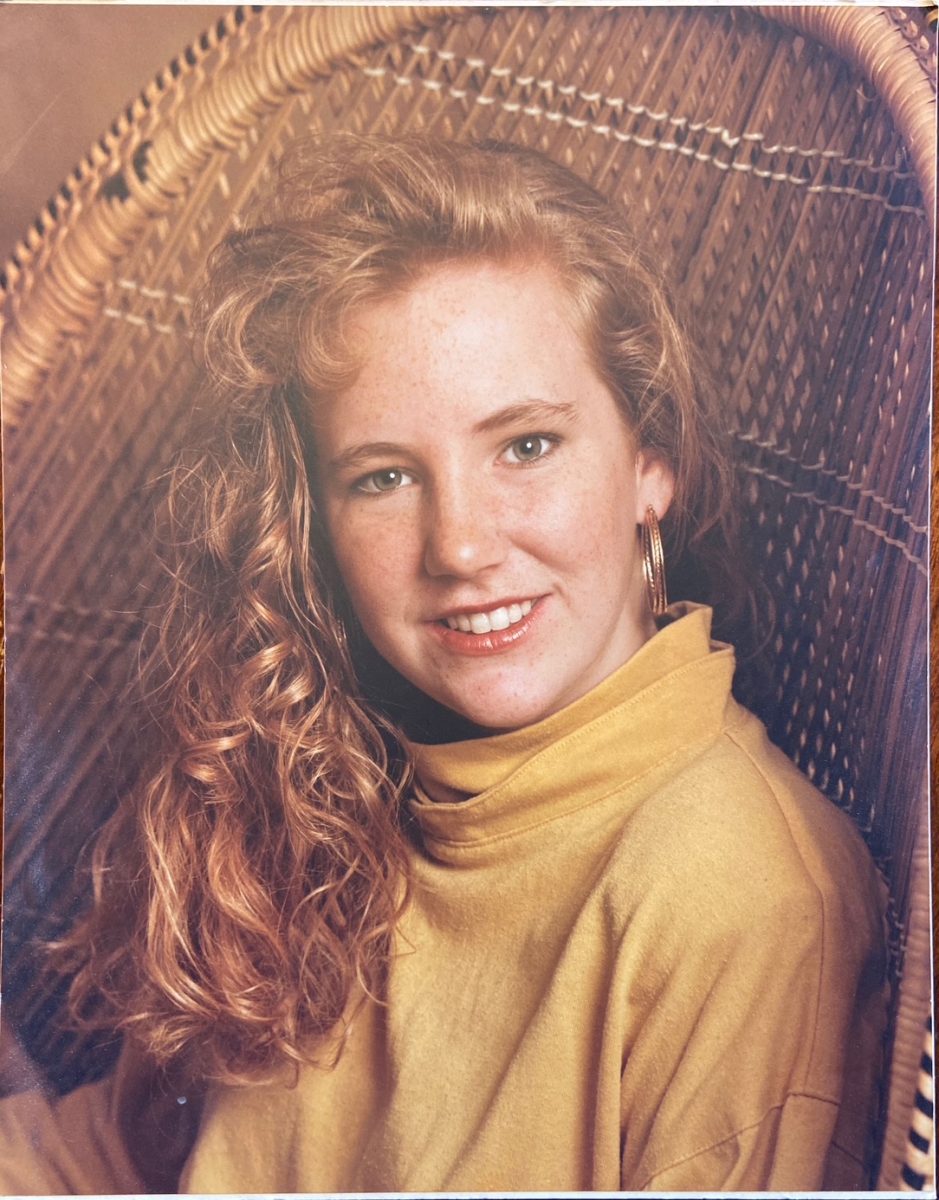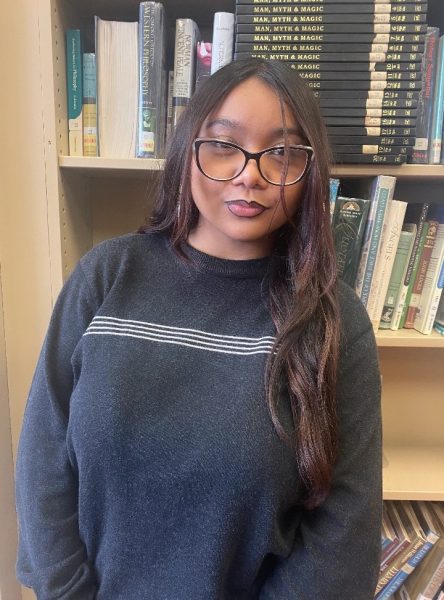Let’s face it, Panthers: not everyone is an “A” student. Many students dedicate their time to other meaningful responsibilities—helping their families, working, or participating in extracurricular activities. No student is truly “perfect,” and those who seem so often work tirelessly to earn such recognition, admiration, and respect. As we navigate our high school years, we all encounter a few bumps along the way.
Mistakes, however, are where real learning happens. Our Panther Library Media Center (LMC) proudly hosts four outstanding tutors who specialize in Science, Mathematics, and History—though they are always willing to help with any subject. These tutors guide students on their journey toward academic success and help them get back on track when challenges arise. I had the opportunity to speak with each of our tutors, Ms. Morales, Mr. Johnson, Ms. Tesiny, and Ms. Bravo, to gain their insights into what students need to succeed and why achieving success truly requires teamwork between students, school staff, and parents/guardians.
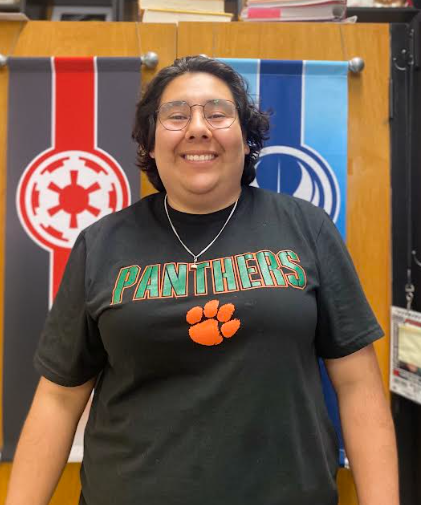 Words of Wisdom from Ms. Morales
Words of Wisdom from Ms. Morales
How can teachers and parents work together to support student success?
“The biggest thing is communication between parents and teachers. We always focus on two lines of communication: student to teacher and teacher to parent. So, parents and teachers need to be on the same team to make sure students succeed. Overall, the support necessary is communication.”
What are some common challenges students face in education, and how can they be addressed?
“Common challenges are self-preservation and time management, as these go hand-in-hand. Students need to protect their time and not get distracted by things that are not priorities.”
How can schools address issues of equity and access to ensure all students have the opportunity to succeed?
“Programs such as tutoring help combat equity issues. We also need to make these opportunities known to students; so many students are unaware of the support that is available to them. We as teachers need to also think about our students, listen to our students, and applying their feedback. Student input DOES make a difference. Students need to speak up.”
How can teachers foster critical thinking and problem-solving skills in their students? What role does social-emotional learning play in student development and academic success?
“With creating and building a classroom culture and a safe and comfortable space to be able to engage in tasks. It goes back to social and emotional learning, keeping in mind the students thoughts and feelings. We can’t read what they’re thinking. We appreciate when students come forward and advocate for themselves.”
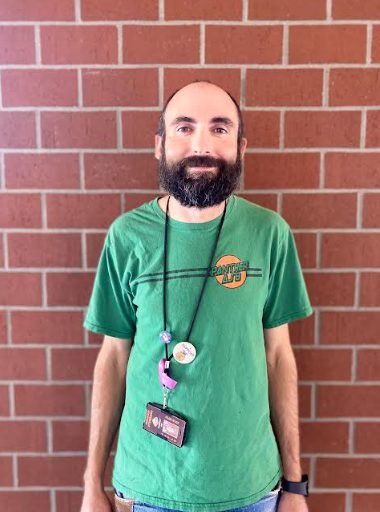
Thoughtful Takeaways from Mr. Johnson
How can parents and teachers work together to support student success?
“Parents could be more willing to reach out on their concerns about their students. In return, teachers should be willing to work with students & parents.”
What are some common challenges students face in education, and how can they be addressed?
“There’s a lot . . . well, between 7 different classes [it’s overwhelming for students], but also extracurricular commitments and home lives, their social lives, and jobs all contribute to students being busy! Students have extra responsibilities out of school and a whole life of their own that they’re developing. It’s all about finding that happy balance.”
How can schools address issues of equity and access to ensure all students have the opportunity to succeed?
“There’s a lot of teachers who’ll offer help on their free time. Having more avenues for help when needed would go a long way providing that equity.”
How can teachers foster critical thinking and problem-solving skills in their students? What role does social-emotional learning play in student development and academic success?
“Providing problems that actually play a part in students lives. It helps provide a scaffolds for problem-solving and critical thinking skills. When students, have an active part in their learning their more likely to open up about what they feel and think about potential topics. These problems usually can’t just affect are student, & could help groups come together to solve real issues.”
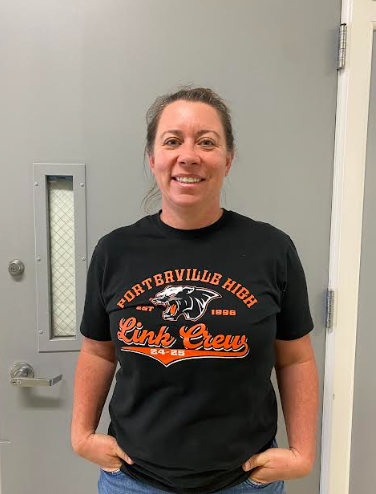
Motivation and Mindset with Ms. Testiny
How can parents and teachers work together to support student success?
“I think parents and students could work together to communicate clearly when there are concerns or praises to be made. Overall, Communication.”
What are some common challenges students face in education, and how can they be addressed?
“Common challenges students struggle with are outside influences. It’s important for students to have a goal or plan and stick to that, as it helps you stay on track.”
How can schools address issues of equity and access to ensure all students have the opportunity to succeed?
“Schools need to be flexible. The staff needs to be able to handle issues inside and outside of the classroom. Porterville High does a great job, therefore I’d say schools need to take time to put in funding.”
How can teachers foster critical thinking and problem-solving skills in their students? What role does social-emotional learning play in student development and academic success?
“To foster critical thinking, you have to foster the social and emotional development skills for such. If some students are struggling, it’s hard for their mind to stay on one thing. That’s usually behind the scenes outside of the classroom, which leads into addressing issues of the real world and it’s impact on our student especially moving forward.”
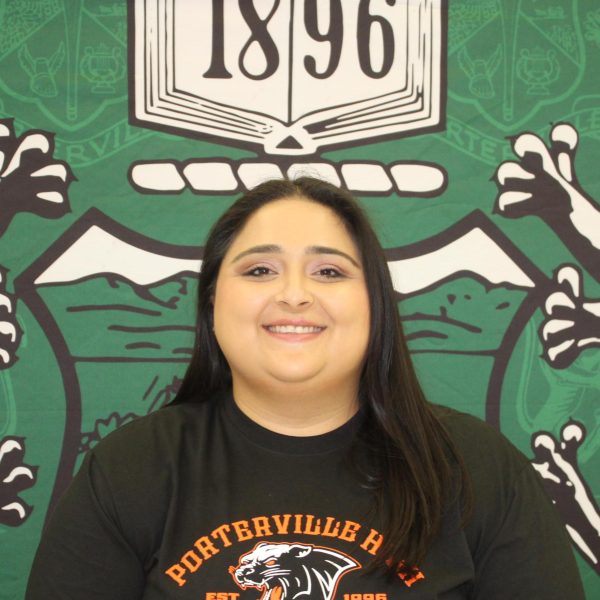
Perseverance and Positivity with Ms. Bravo
After speaking with our wise teachers, we can all agree on one thing: hang in there. Help is closer than you think. In case you need extra support, tutoring is available in the LMC from 3:50 to 4:50 p.m on Mondays, Tuesdays, and Thursdays. If you can’t make it after school, don’t worry; dedicated teachers such as Mr. Johnson (H-101) and Ms. Morales (M-6) also offer assistance during lunch. These interviews show that our teachers at PHS are deeply committed to ensuring that every student’s learning experience is both equitable and supportive of individual needs. They dedicate their time, energy, and compassion to helping us grow both academically and personally. Above all, our teachers truly care.One important takeaway is that it’s essential to advocate for yourself by communicating with your parents and teachers. Together, we are all on the same team: ours. The reality is that everyone wants to see you succeed. All it takes is showing up, putting in the effort, and asking for help when you feel lost or uncertain. After all, it’s never game over in this journey of learning. Growth happens one day at a time, and our caring staff members are here to guide us along the way, even when we think we can do it all on our own. Because at the end of the day, every Panther has a paw to lend!
